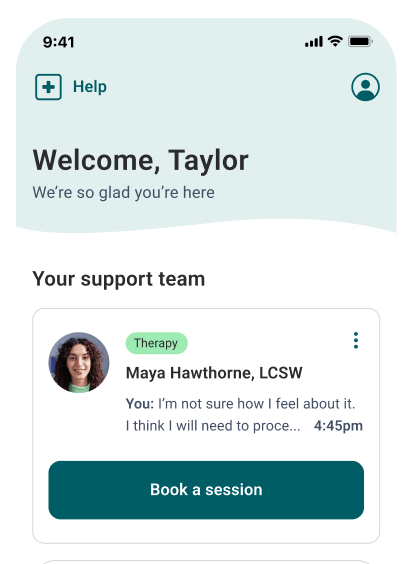Relationships are a central part of life, shaping our emotional, mental, and even physical well-being. The dynamics between partners can deeply influence how we feel day to day, and when challenges arise, it can feel like everything is in turmoil. In some cases, ongoing tension in a relationship isn’t just an emotional strain; research shows that tumultuous relationships, especially those marked by conflict, can even slow physical healing.
Imagine being stuck in a relationship where intense arguments repeat over and over, followed by passionate makeups. You might find yourselves holding onto grudges longer than you’d like, leaving you emotionally drained and stuck in a cycle of instability. What once may have felt dramatic or even exciting can quickly lead to emotional exhaustion and confusion. Over time, this pattern erodes emotional intimacy, potentially leading to a loveless marriage or relationship where connection feels out of reach. These unresolved issues need immediate attention to prevent further emotional damage.
Understanding how to navigate this type of relationship, whether you are dating or married, is essential for your mental health and personal growth.
What is a Tumultuous Relationship?
Tumultuous relationships are characterized by constant ups and downs, emotional highs and lows, and frequent conflict or instability. The emotional rollercoaster of a tumultuous relationship can result in challenges like PTSD, depression, and diminished self-esteem. However, it is possible to break negative patterns and build a healthier connection with your partner through awareness, intentional effort, and support.
Read on to learn how to spot signs, explore causes, and get strategies for surviving a tumultuous marriage or relationship.
Understanding the Signs of a Tumultuous Relationship
Recognizing the signs of toxicity in a relationship is the first step in addressing and recovering from it. When you identify the patterns or signs you can evaluate the relationship and address any underlying issues.
Common indicators of a tumultuous relationship include:
- Frequent and intense arguments: Disagreements escalate quickly. They often involve excessive yelling, blaming, or emotional outbursts devoid of love.
- Extreme emotional highs and lows: The relationship swings between periods of intense love or happiness and episodes of conflict or sadness.
- Lack of trust: One or both partners question the other’s intentions. The relationship is dominated by relationship insecurity, jealousy, or unfounded suspicion.
- Difficulty communicating: Misunderstandings are the norm. Discussions aren’t productive and often end with frustration and blame instead of resolution.
- Feeling emotionally drained: Interactions leave one or both partners feeling mentally or emotionally wiped out.
- Repeated cycles of conflict and reconciliation: Your arguments follow a predictable pattern that includes brief periods of harmony only for the cycle to repeat.
- Control issues: One partner dominates decision-making or exerts their power in unhealthy or abusive ways.
What Causes a Tumultuous Relationship?
Several factors can contribute to a tumultuous relationship. Understanding the root causes is vital if you want to make any meaningful change. Once you know why things are happening, you can directly target the issues that are harming the relationship.
Common contributors to a tumultuous relationship can include:
- Unresolved personal trauma: Past experiences — including childhood neglect, trauma, abuse, or previous toxic relationships — can influence the dynamics of current and future relationships.
- Incompatible communication styles: Communication is a common issue in relationships. Couples who struggle to express and process their emotions in healthy ways often have more profound misunderstandings.
- Unmet emotional needs: If partners can’t or aren’t willing to meet one another’s needs for love, respect, or validation, frustration can build.
- High levels of stress: External pressures, such as work, financial stress, or even basic life, can worsen relationship tension.
- Challenges with emotional regulation: When one or both partners have difficulty managing their emotions, it can lead to overreactions or prolonged conflicts, adding strain to the relationship. Emotional regulation challenges may stem from personal factors like stress, trauma, or neurodiversity, and they often require mutual understanding and healthy coping strategies to navigate effectively.
- Differing values or goals: If there are fundamental disagreements in the relationship about priorities, life goals, or values, it will likely create ongoing friction. This is a common challenge in interracial relationships, where differing cultural perspectives can add an additional layer of complexity.
- Power imbalances: In a relationship, unequal distribution of power, control, or decision-making can quickly foster resentment and instability that’s hard to overcome without intentional effort.
Tips for Navigating Tumultuous Relationships
There are many tips for managing a tumultuous relationship. It can feel overwhelming and daunting, but the following strategies will help you find emotional balance in your relationship (or know if it’s time to make the painful decision to leave).
Practice open and honest communication
Setting aside dedicated time to openly discuss your relationship helps reduce miscommunications and can deepen your emotional connection, especially after a fight.
Clear, open, and genuine communication is essential for resolving continuous conflict in a relationship.
Try to be vulnerable and share your feelings with your partner, talking through things that bother you. Feeling like you can’t express yourself stifles a good connection. Make sure to also listen to your partner’s perspective without being judgmental or defensive. Ask clarifying questions so you fully consider and understand their point of view.
Identify and address triggers
When you evaluate conflict in your relationship, you can pinpoint fight triggers more effectively. By recognizing specific topics or behaviors that create tension, you’ll be able to identify problem patterns and take proactive steps to address or avoid them.
After you find a trigger, work with your partner to minimize the impact. For example, you might adjust routines, practice patience, or seek outside support like therapy to cope with relationship stress.
Set boundaries
Discussing boundaries openly with your partner is a great way to ensure mutual respect and understanding in your relationship. Boundaries are crucial for protecting emotional well-being in any relationship, and they become even more essential in a tumultuous one. For instance, if your arguments usually escalate late at night, you can set a boundary that limits discussions to a certain point in the evening, agreeing to revisit them the next day so both people can think about what they want to talk about without getting frustrated.
“Ground rules are everything. Examples include (but are not limited to), the commitment to not cuss, or to not demean our partners, keep our dirty laundry away from other people, never fight at night, etc.”
– Talkspace therapist Dr. Meaghan Rice, PsyD, LPC
Over time, consistent, healthy relationship boundaries help to establish a sense of safety and predictability.
Focus on conflict resolution
Learn and use conflict resolution techniques to stabilize and strengthen your relationship. For example, practice staying calm, using “I” statements, or working together to find solutions instead of blaming each other when you have disagreements.
Try writing down strategies that both of you agree on for handling disagreements. Having a plan in place can help deescalate rising tensions, as staying on the same page before emotions run high is an effective way to stop fighting in a relationship. Remember that resolving conflict isn’t about “winning” — it’s about finding the best outcome for both parties.
Cultivate emotional regulation
Healthy emotional regulation skills can reduce overreactions so you can approach conflicts in constructive ways. Practices like mindfulness, deep breathing, or journaling are effective ways to find strength in a challenging relationship. Regular self-reflection also helps find emotional patterns that might be contributing to toxicity in your relationship.
Foster empathy and understanding
Empathy and understanding can improve any relationship. Try to put yourself in your partner’s shoes to understand their feelings and motivation. Taking an empathetic approach to relationship problems can bridge divides and help you reconnect with your partner.
Building empathy is easier when you use active listening — like asking and learning about your partner’s past experiences and perspectives. When both partners feel understood, your relationship is more likely to thrive.
Seek professional support
Some relationships really benefit from seeking outside support. Couples or individual therapy offers valuable tools to navigate challenges and improve communication.
Therapy creates a neutral, safe space to work through complex, emotionally charged, unresolved conflicts that would be nearly impossible to overcome without help. It’s especially effective if unhealthy patterns have become so ingrained they’re second nature in how you deal with each other.
A therapist will offer relationship advice and help you uncover deep-seated issues so you can work on overcoming them and strengthening your relationship.
Revisit relationship goals
Reflect on your shared desires in love and relationship goals and values as a couple. Talking about what you want to achieve together can provide clarity and give you a renewed sense of purpose in your relationship. Regularly revisit goals to ensure both partners are fulfilled and supported. This practice also reminds you why you’re with each other and what you want to build together.
Take responsibility
Acknowledging your role in a relationship’s challenges can be difficult, but it can open the door to meaningful change. If you’ve been reactive or dismissive, owning your behavior — and offering a sincere apology when appropriate — can help rebuild trust. Taking responsibility and being mutually accountable helps create a new, healthy foundation for growth.
“Ownership breeds vulnerability. There’s a significantly higher probability that if our partners own their role in something tumultuous, that we will follow suit.”
– Talkspace therapist Dr. Meaghan Rice, PsyD, LPC
Know when to let go
In some cases, ending the relationship might be the healthiest choice. Recognizing when a tumultuous marriage or partnership is more harmful than healthy is a powerful act of self-care.
It’s critical to understand (and genuinely believe) that letting go doesn’t signify failure. It’s an opportunity to prioritize your well-being so you can be more open to pursuing healthier connections in the future.
Finding Support to Work on Your Relationship
Navigating a tumultuous relationship can be incredibly challenging — but you don’t have to go through it alone. Seeking professional support like therapy can help you understand how to repair a strained relationship. Whether you start couples therapy or decide you need individual counseling, a skilled therapist will offer deep insight that’s tailored to your unique situation.
If you’re struggling in a tumultuous marriage or relationship, asking for help shows your strength and commitment to grow — whether it’s in your relationship or on your own. Talkspace understands the complexities and challenges of relationships. If you’ve bravely decided to get help, Talkspace offers online therapy from the comfort of your home. Online couples therapy can be the first step you take toward a healthier, more fulfilling partnership.
Sources:
- Kiecolt-Glaser JK, Loving TJ, Stowell JR, Malarkey WB, Lemeshow S, Dickinson SL, Glaser R. Hostile marital interactions, proinflammatory cytokine production, and wound healing. Archives of General Psychiatry. 2005;62(12):1377. doi:10.1001/archpsyc.62.12.1377. https://pubmed.ncbi.nlm.nih.gov/16330726/. Accessed December 16, 2024.
- Forth A, Sezlik S, Lee S, Ritchie M, Logan J, Ellingwood H. Toxic Relationships: The experiences and effects of psychopathy in romantic relationships. International Journal of Offender Therapy and Comparative Criminology. 2021;66(15):1627-1658. doi:10.1177/0306624×211049187. https://pmc.ncbi.nlm.nih.gov/articles/PMC9527357/. Accessed December 16, 2024.
Talkspace articles are written by experienced mental health-wellness contributors; they are grounded in scientific research and evidence-based practices. Articles are extensively reviewed by our team of clinical experts (therapists and psychiatrists of various specialties) to ensure content is accurate and on par with current industry standards.
Our goal at Talkspace is to provide the most up-to-date, valuable, and objective information on mental health-related topics in order to help readers make informed decisions.
Articles contain trusted third-party sources that are either directly linked to in the text or listed at the bottom to take readers directly to the source.









